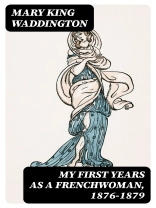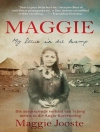Mary King Waddington’s ‘My First Years as a Frenchwoman, 1876-1879’ provides a captivating glimpse into the life of an American woman navigating French society in the late 19th century. Through a series of detailed anecdotes and observations, Waddington offers a unique perspective on the cultural and political landscape of the time. Her writing style is both informative and engaging, blending personal experiences with historical context seamlessly. This memoir serves as a valuable primary source for scholars interested in women’s experiences in the 19th century and the dynamics between different cultures. Waddington’s ability to reflect on her surroundings with insight and introspection adds depth to the narrative, making it a compelling read for history enthusiasts. Mary King Waddington’s background as an American expatriate living in France lends credibility to her account of the period, allowing readers to gain a nuanced understanding of her perspective. Overall, ‘My First Years as a Frenchwoman, 1876-1879’ is a must-read for those interested in a personal and insightful exploration of life in France during the late 19th century.
Giới thiệu về tác giả
Mary King Waddington, an author with an evocative pen, delved into the intricate textures of cross-cultural experiences through vivid memoirs of her life. Her seminal work, ‘My First Years as a Frenchwoman, 1876-1879’, offers a unique perspective on Franco-American cultural intersections. Born as Mary Alsop King in New York City, she crossed the Atlantic and ingrained herself into the upper echelons of French society through her marriage to William Henry Waddington, a prominent French statesman and diplomat. This union not only elevated her social standing but also provided fertile ground for her literary pursuits. Mary’s astute observation and elegant prose encapsulate the adjustment from American social mores to the ceremonious intricacies of French life post-Franco-Prussian War. The book serves not just as a memoir but as a cultural artifact, a prism through which the era’s societal norms are both revealed and critiqued. Her literary style is characterized by a blend of personal anecdote and cultural commentary, weaving her story into the broader tapestry of late 19th-century European politics and society. Through her work, Waddington has contributed significantly to the understanding of the lived experience of American expatriates in Europe, providing scholars and enthusiasts alike with invaluable insights into the negotiation of identity amidst contrasting cultural landscapes.












